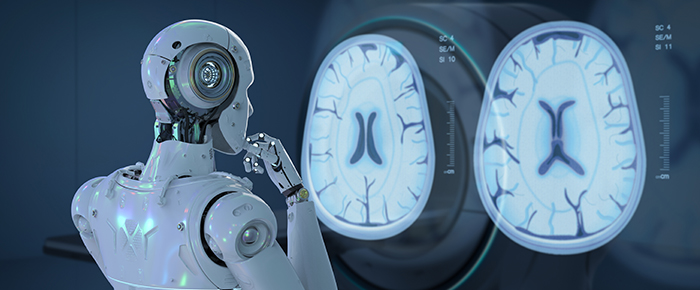
AI Unveils Revolutionizing Medical Diagnosis: Precision and Accuracy RedefinedAI Unveils Revolutionizing Medical Diagnosis: Precision and Accuracy Redefined In the ever-evolving realm of healthcare, artificial intelligence (AI) is emerging as a groundbreaking tool, revolutionizing medical diagnosis with unprecedented precision and accuracy. Harnessing Data for Accurate Diagnosis AI algorithms are trained on vast databases of medical images, patient records, and scientific literature. This massive data analysis enables AI systems to identify complex patterns and correlations that escape human perception. As a result, AI can detect diseases at earlier stages, differentiate subtle variations in symptoms, and provide more precise diagnoses. Precision in Radiology In radiology, AI is already playing a pivotal role. Algorithms can analyze medical images, such as X-rays, CT scans, and MRIs, to identify abnormalities with pinpoint accuracy. This enhanced precision allows for timely diagnosis of life-threatening conditions, like cancer and heart disease, leading to improved treatment outcomes. Personalized Medicine AI has the potential to transform personalized medicine. By analyzing individual patient data, including genetic information and lifestyle factors, AI systems can tailor diagnoses to specific profiles. This precision enables clinicians to provide more targeted treatments that are optimized for each patient’s unique needs. Reduced Uncertainty Traditional diagnostic methods often rely on subjective assessment, leading to uncertainties in diagnosis. AI algorithms, however, provide objective and quantifiable results, reducing ambiguity and providing clinicians with greater confidence in their diagnostic conclusions. Time-Saving AI-powered diagnostic tools can significantly reduce the time required for diagnosis. By automating image analysis and interpreting patient data, AI frees up clinicians to spend more time with patients, focus on complex cases, and provide individualized care. Improved Healthcare Access AI-enabled medical diagnostics can expand access to quality healthcare in remote and underserved areas. By providing accurate diagnoses without the need for expensive equipment or specialized physicians, AI can improve health outcomes for populations that may not have previously had access to timely or accurate medical care. Challenges and Considerations While AI in medical diagnosis holds immense promise, it is essential to address ethical and practical challenges. These include data privacy, bias mitigation, and the need for rigorous validation to ensure the accuracy and reliability of AI systems. Conclusion AI is transforming medical diagnosis, offering unprecedented precision, accuracy, and time-saving potential. As AI algorithms continue to advance, we can expect even more breakthroughs in disease detection, personalized medicine, and improved healthcare outcomes. By harnessing the power of AI, we can empower clinicians with the tools they need to provide the best possible care for their patients.
Posted inNews